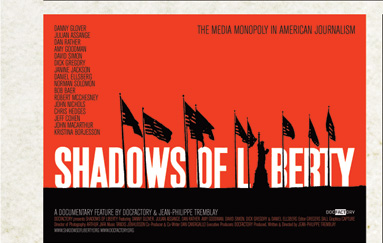Our Blog
And the winner is… ‘The World Before Her,’ a film about a group of contestants in a beauty contest, vying for the Miss India crown, contrasted with a group of girls undergoing combat training for a militant fundamentalist group. Great movie! Canadian, and well worth a look… Another year of Hot Docs ends with attendance figures up significantly. Some 165,000 people saw 189 films over the course of 11 days. Not bad! 2012 has also been another great year for Canadian documentaries, several of which have been collecting international awards and gaining a lot of attention. As Kevin McMahon wrote in the National Post, ‘documentary is uniquely ours by both history and nature, and we are (I’m sorry to boast) the best in the world at it.’ Given our success at something that, like hockey, is uniquely Canadian, what’s up with the Harper government’s assault on documentary filmmakers, (along with environmental groups, and others). Clearly, it’s about silencing alternative voices not in sync with the Conservative agenda. And the result, by design, is that Canadian culture takes yet another blow. With these issues weighing heavily on filmmakers throughout the festival, including an organized protest in front of the ROM, I felt ‘Shadows of Liberty,’ directed by Quebec filmmaker Jean-Philippe Trembley, really stood out.
The film looks at the Corporatization of media and the death of objective journalism. We are presented with numerous examples of profits and politics getting in the way of facts as important stories, such as Nike’s use of slave labour, being buried when CBS announces an Olympic partnership with the sneaker company. Adding insult to injury, all of the CBS reporters are required to wear a Nike logo on camera, during Olympic broadcasts. Talk about laughing in the face of integrity. The original reporter on the story Roberta Baskin, chose to leave CBS instead of continuing with the charade. Another story covers journalist Gary Webb, who wrote about the ‘Contra’ guerrillas, desperate efforts to finance their war against Nicaragua’s Sandanistas. Webb’s story detailed CIA involvement in selling crack in American neighbourhoods, in order to funnel money to the Contras, who were supported by President Reagan. But the story proved too hot for corporate media giants including the Washington Post and the New York Times, to touch. Instead, it was buried and the credentials of this Pulitzer Prize winning author were attacked. Even though Webb’s assertions were later verified by the CIA, who ‘acknowledged in March 1998 that the agency had covered up Contra drug trafficking for more than a decade,’ it was too late for Gary Webb. His career was destroyed by the ‘powers that be’ and he was eventually found dead in what was reported a suicide.  Not surprising, as the film points out, it was Ronald Reagan, a former Corporate pitchman for the likes of GE and Westinghouse who led the charge of deregulation in the media, resulting in the loss of some 35,000 jobs of reporters like Roberta Basking and Gary Webb, who were committed to exposing corporate and political corruption. Remember the exhaustive coverage for the ‘Balloon Boy?’ You might thank President Reagan for that and anything else like it. The film ends on a plea for maintaining net neutrality, the idea that the internet must remain free of corporate and government interference or restrictions and that information continue flow freely. Given what has transpired over the last few decades it’s easy to be pessimistic. Director Jean Philippe Trembley has combined a mass of information and talking heads with clear vision and beautiful images to tell a powerful story.
Not surprising, as the film points out, it was Ronald Reagan, a former Corporate pitchman for the likes of GE and Westinghouse who led the charge of deregulation in the media, resulting in the loss of some 35,000 jobs of reporters like Roberta Basking and Gary Webb, who were committed to exposing corporate and political corruption. Remember the exhaustive coverage for the ‘Balloon Boy?’ You might thank President Reagan for that and anything else like it. The film ends on a plea for maintaining net neutrality, the idea that the internet must remain free of corporate and government interference or restrictions and that information continue flow freely. Given what has transpired over the last few decades it’s easy to be pessimistic. Director Jean Philippe Trembley has combined a mass of information and talking heads with clear vision and beautiful images to tell a powerful story.



